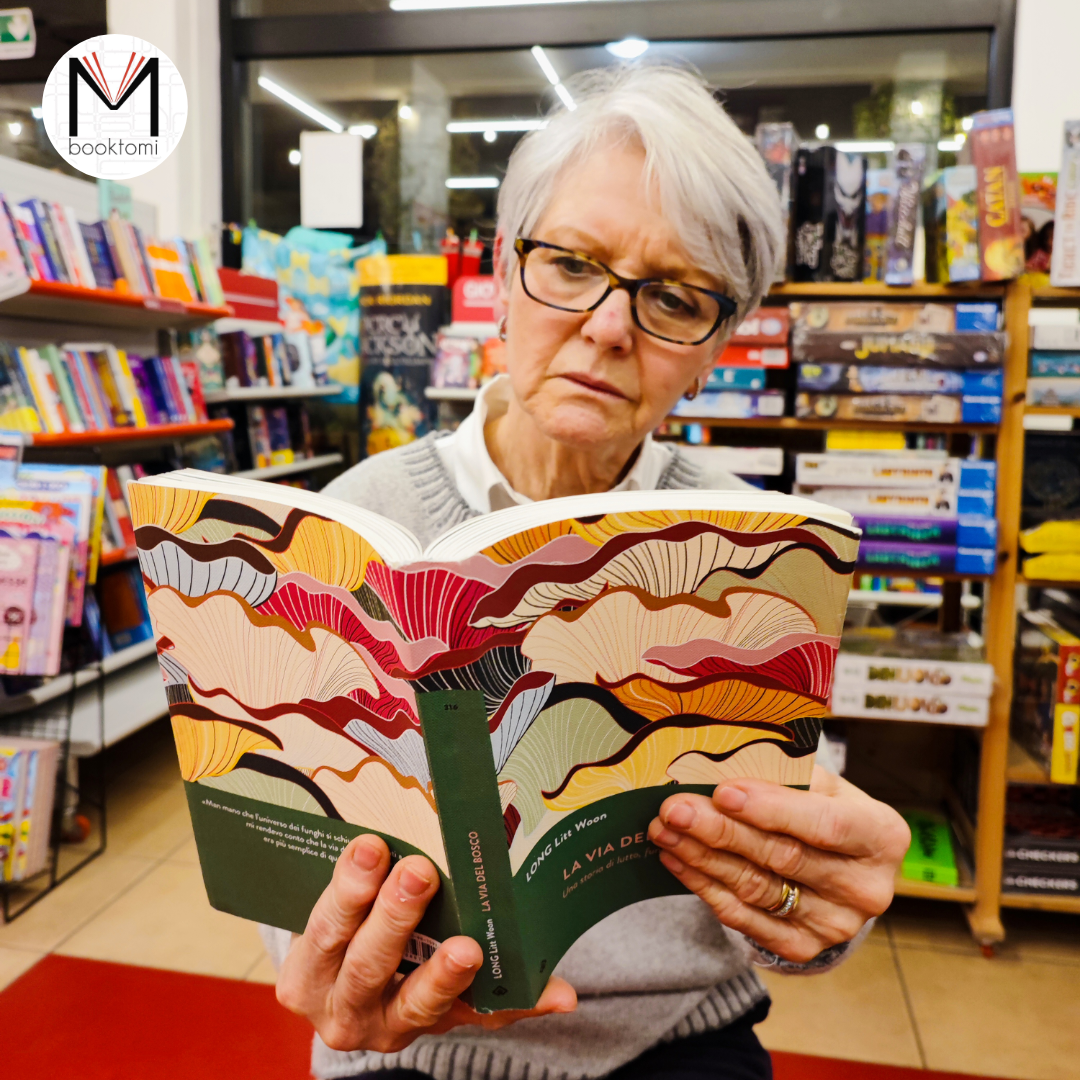“FRIDAY RE-VERSO”
“The footprint of a life is everywhere.”
A Malaysian anthropologist, transplanted to Norway, manages to overcome her husband’s sudden bereavement thanks to an unexpected encounter with the world of mushrooms.
It seems that the community of readers really liked this book: it praises its delicacy and the unusual but refined way in which two apparently very distant themes, mourning and mycology, were brought together.
We’re a bit perplexed.
The book flows, as they say, we reach the end without any particular impediments, supported in this journey by the numerous and curious information that we are gradually learning about the bizarre fungal universe. But.
First of all, mushrooms do not perform any specific function in processing the loss – or rather, they do it as any other hobby that involves assiduous study and equivalent motor activity could do. Mycology is a fascinating branch of knowledge, let it be said, and the best value of the text remains that of arousing curiosity and providing a bland smattering of the subject. Perhaps even more interesting is the anthropological gaze with which the author approaches issues such as the culturally connoted perception of taste or the notion, only apparently objective, of “edibility”. The reflections on olfactory definitions open up paths of investigation for the more curious and, most certainly, give rise to a great desire to eat mushrooms.
The pain of the loss, however, remains evanescent, told in a diary form that would have required more stringent editing to become communicative and universal. We ask ourselves what place this book can occupy on our internal shelves, to whom we would recommend it, what we take home from the reading experience: a path of recovery, yes, but which can perhaps be summed up in that “time will fix everything” that in the midst of desperation no one wants to hear. Death is told in such a tangential and indirect way that it also takes away its counterpart of rebirth. The loop of thoughts that takes away concreteness from daily life is credible but the malaise, the emptiness at every step, the bewilderment do not really reach the reader, they do not become a living thing. Without wanting to disrespect the genuine and also very sweet sharing that these pages present to us, we cannot appreciate the style which recalls those school themes in which, alongside the main topic, we insert two or three intimate and personal reflections which will guarantee us a extra point in the final evaluation.
Some paragraphs gain our empathy as human beings but as readers we invest time and energy in a story that, it seems to us, does not enrich us in those folds of the soul that other readings, other authors have been able to relax and illuminate in different ways.
Written by Delis
____________________________________________________________________________________________________
Long litt Woon, La via del bosco, Iperborea, Milano, 2019
Original edition: Stien tilbake til livet, Virgmostad&Bjørke, Bergen, 2017



